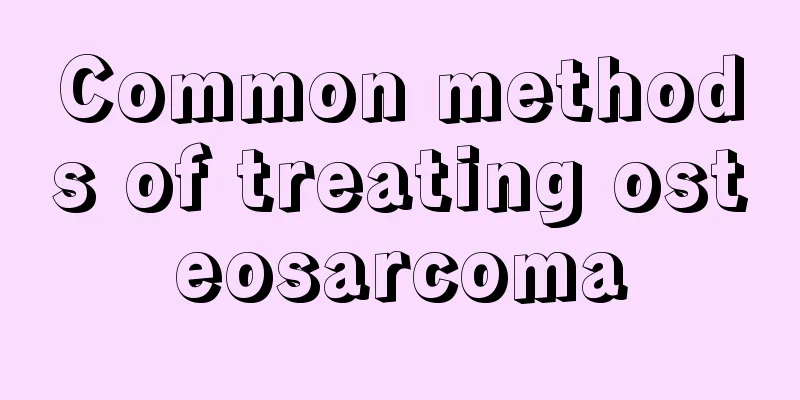Let's solve the problem of how to diagnose esophageal cancer

|
The diagnosis of esophageal cancer is something that many people do not understand. Everyone needs to know more about the diagnosis of esophageal cancer. Now, let the experts discuss with you what the diagnosis of esophageal cancer is. I hope it can help everyone better understand the diagnosis of esophageal cancer . (1) Esophageal barium meal examination: The diagnostic examination of esophageal cancer can observe the peristalsis of the esophagus, the relaxation of the esophageal wall, changes in the esophageal mucosa, esophageal filling defects and the degree of obstruction. Esophageal peristalsis cessation or reverse peristalsis, local stiffness of the esophageal wall that cannot fully expand, esophageal mucosal disorder, interruption and destruction, esophageal lumen stenosis, irregular filling defects, ulcers or fistula formation and esophageal axial abnormalities are all important signs of esophageal cancer. Hypotonic double contrast is more effective in detecting early esophageal cancer than conventional contrast. (2) Esophageal CT examination: CT examination can clearly show the relationship between the esophagus and the adjacent mediastinal organs. The normal esophagus has a clear boundary with the adjacent organs, and the thickness of the esophagus does not exceed 5mm. If the thickness of the esophageal wall increases and the boundary with the surrounding organs is blurred, it means that there is an esophageal lesion. CT examination can also fully show the size of esophageal cancer lesions, the scope and degree of tumor invasion. At the same time, CT examination results can also help determine the surgical method and formulate radiotherapy plans. In 1981, Moss proposed the CT staging of esophageal cancer: Stage I: The tumor is confined to the esophageal cavity, and the thickness of the esophageal wall is ≤5mm; Stage II: The esophageal wall is >5mm; Stage III: The esophageal wall is thickened, and the tumor extends to adjacent organs, such as the trachea, bronchi, aorta or atrium; Stage IV: The tumor has distant metastasis. However, the value of esophageal CT in detecting early esophageal cancer is limited, which is the diagnosis of esophageal cancer. The above content is the diagnosis of esophageal cancer introduced by experts. Please pay attention to it. I hope it will be helpful to you. If you have other questions about the diagnosis of esophageal cancer, please consult online experts and they will give you detailed answers. |
<<: Let me tell you about the complications of esophageal cancer
>>: The cause of esophageal cancer is related to the following factors
Recommend
What to eat after primary liver cancer surgery Three dietary principles after primary liver cancer surgery
The liver is a very important organ for everyone....
What is the reason for bad breath
What causes bad breath Bad breath is a common sym...
The whole body is limp and powerless
Most people would think that general soreness and...
Is there any good way to treat lung cancer? You should pay attention to these matters when treating lung cancer
In recent decades, the incidence of lung cancer h...
How to style the bride’s hair?
The happiest moment for a woman is her wedding da...
Is hot compress effective for synovitis
Synovitis is a common disease that mainly affects...
Which diseases are easily confused with colon cancer
What diseases are easily confused with colorectal...
How to apply double eyelid tape if your eyelids are thin
Every woman wants to have a pair of bright eyes, ...
How to soak monk fruit in water? What are the methods?
The most common way to cook monk fruit is to soak...
Symptoms of myringitis
The symptoms of tympanitis may include ear pain, ...
How to treat primary liver cancer? 5 treatment measures for primary liver cancer
Secondary liver cancer may be a single nodule, bu...
Can patients with lymphoma get pregnant?
It is best not to get pregnant, because pregnancy...
What kind of honey is best for constipation?
Modern people are usually under great pressure. S...
Common knowledge about traditional treatments for kidney cancer
Most of the development of renal cancer is insidi...
Insist on living a "Bajie" life in summer health preservation
As we enter the hot summer, we need to know that ...









